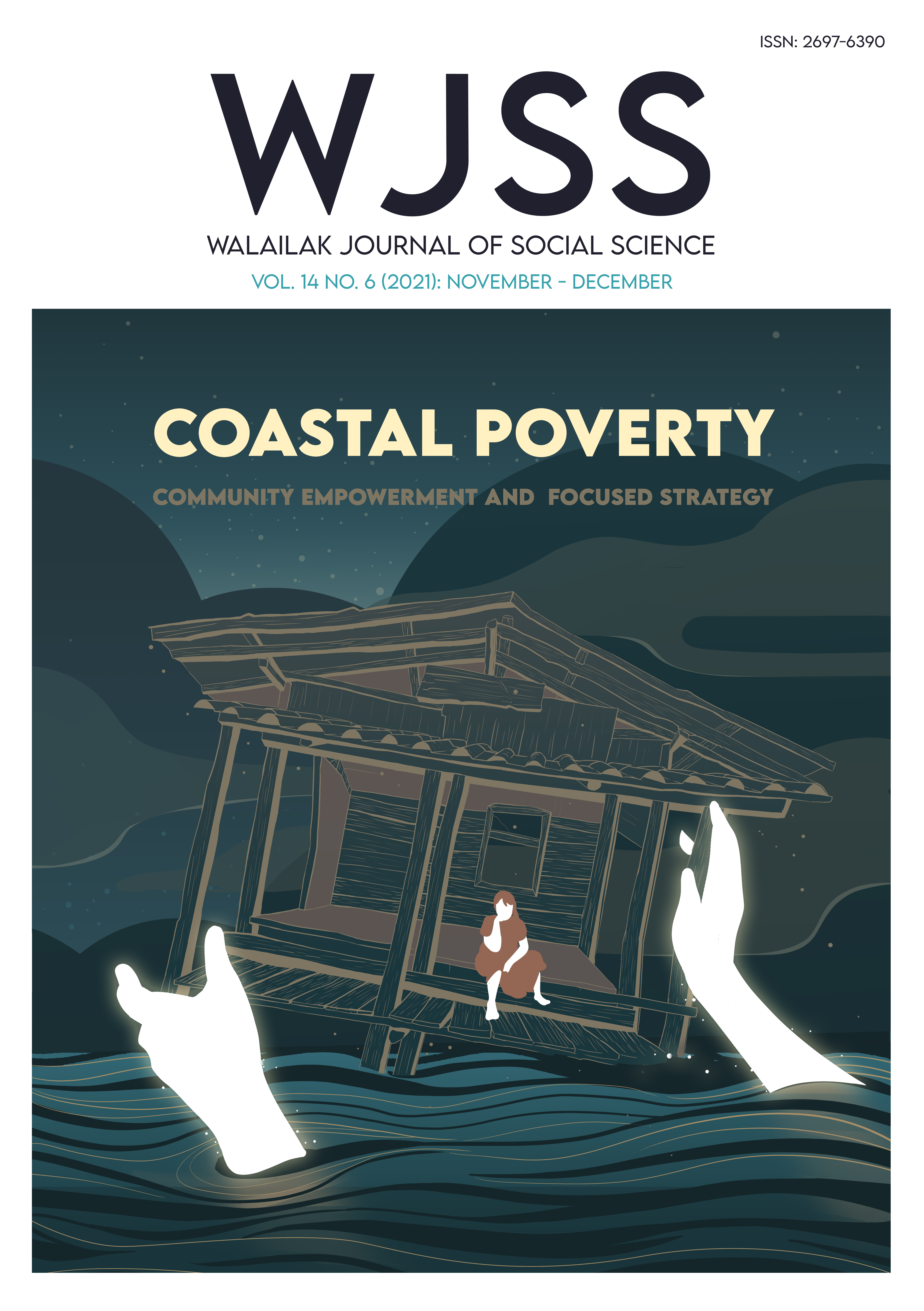The Social Roles of Thai Bhikkhunis in the Local Community of Present-Day Thai Society
Main Article Content
Abstract
In this paper, the social roles of Thai Bhikkhunis (Buddhist female priests) are analyzed by using the concept of roles. The concept of roles, developed by Bloom and Selznick (1973), Turner (1998), Good (1973), and Raven and Rubin (1976), is also grouped. As a result, the social roles of Thai Bhikkhunis can be divided into three categories: a prescribed role, a perceived role, and a performed role. The prescribed role or a publisher of Buddhist doctrine is the role that Thai Bhikkhunis have shown as good Bhikkhunis. They publicize Buddhist teachings and religious education. This role has probably existed since Buddha's time in the view of the author. However, the forms of this role have evolved over time. The content of the Buddhist teachings has been changed in response to the new generation as well. The perceived role is an unclear role of female priests in Thai society. With the fact that the Sangha Supreme Council has not yet approved the ordination of Bhikkhunis in Thailand, the status of Thai Bhikkhunis is still unclear. The performed role is defined as the role of a social worker for Thai Bhikkhunis. This role of Thai Bhikkhunis can be easily noticed in Thai society. It has provided various benefits to the public. Nevertheless, the main goal of this paper is to give a better understanding toward Thai Bhikkhunis. It does not intend to spark the debate on whether the ordination of Bhikkhunis should be allowed in Thai society. It is expected to draw more attention to the benefits that Thai Bhikkhunis have contributed to their community.
Article Details
Copyright: CC BY-NC-ND 4.0
References
Arayawangso. (2012). Criticism from Dr. Kornwipha: The case of Bhikkhuni in Buddhism (Theravada) worth listening (Part 12). Retrieved from https://www.posttoday.com/dhamma/141478
BBCNEWS. (2017). Remembering Makha came to know a Bhikkhuni at Thai is not certified. Retrieved from https://www.bbc.com/thai/features-38941983
Broom, L., & Selznick, P. (1973). Sociology: A text with adapted Readings. 5th (eds.). New York.
Buaban, J. (2017). Thai Bhikkhunis: Women’s rights - liberalism. On a conservative stride. Retrieved from https://www.tcijthai.com/news/2017/04/scoop/7217
Chatchofa, A., & Nanthawaropas, N. (2019). Political communication for the status of Bhikkhunis in Thailand: A case study of Bhikkhunee Dhammananda. Journal of Mahidol Social Sciences Periscope, 8(1), 214-225.
Chhun, S. (2020). Theravada Bhikkhunee in Cambodia. Journal of Religious Anthropology, 1(3), 11-37.
Dailynews. (2020). “Bhikkhuni-Nun” The world of forgotten women. Retrieved from https://www.dailynews.co.th/article/771511
Good, C. V. (1973). Dictionary of education. New York: Mcgraw Hill.
Linton, R. (1936). The study of man: An introduction. Appleton-Century.
Phra Rapin Puttisaro. (2017). New Buddhist movement: Women and religious areas in Thailand. Buddhist innovations for the development of Thailand. In Proceedings of the 4th International Academic Conference, 2nd International Level (p. 11). Khon Kaen, Thailand: Mahachulalongkornrajavidyalaya University Khon Kaen Campus.
Raven, B. H., & Rubin, J. Z. (1976). Social psychology: People in groups. John Wiley & Sons.
Raymond, L. (2019). Bhikkhunī - Buddhism, Sri Lanka, Revolution: A film on the Epicenter of Theravada female ordinations. Retrieved from https://www.buddhistdoor.net/features/bhikkhuni-buddhism-sri-lanka-revolution-a-film-on-the-epicenter-of-theravada-female-ordination
Rizzo, J. R., House, R. J., & Lirtzman, S. I. (1970). Role conflict and ambiguity in complex organizations. Administrative Science Quarterly, 15(2), 150-163.
Sarbin, T. R., & Hardyck, C. D. (1955). Conformance in role perception as a personality variable. Journal of Consulting Psychology, 19(2), 109-111.
Srichampa, S. (2010). Thai Buddhism, women, and social change. Research Institute for Languages and Cultures of Asia Mahidol University. Mahidol University: Thailand.
TCIJ. (2014). Keep an eye on: Statement of Prof. The Thai Sangha cannot endorse the ordination of a nun. Retrieved from https://www.tcijthai.com/news/2017/04/watch/7218
Thaibhikkhunis. (2019). History of Bhikkhunee Dhammananda. Retrieved from https//www.thaibhikkhunis.com/th/2019/01/09
Tillman, M. K. (1970). Temporality and role-taking in G.H. mead. Social Research: An International Quarterly, 37(3), 533-546.
Turner, J. H. (1998). The structure of sociological theory. San Francisco: Thomson Learning


